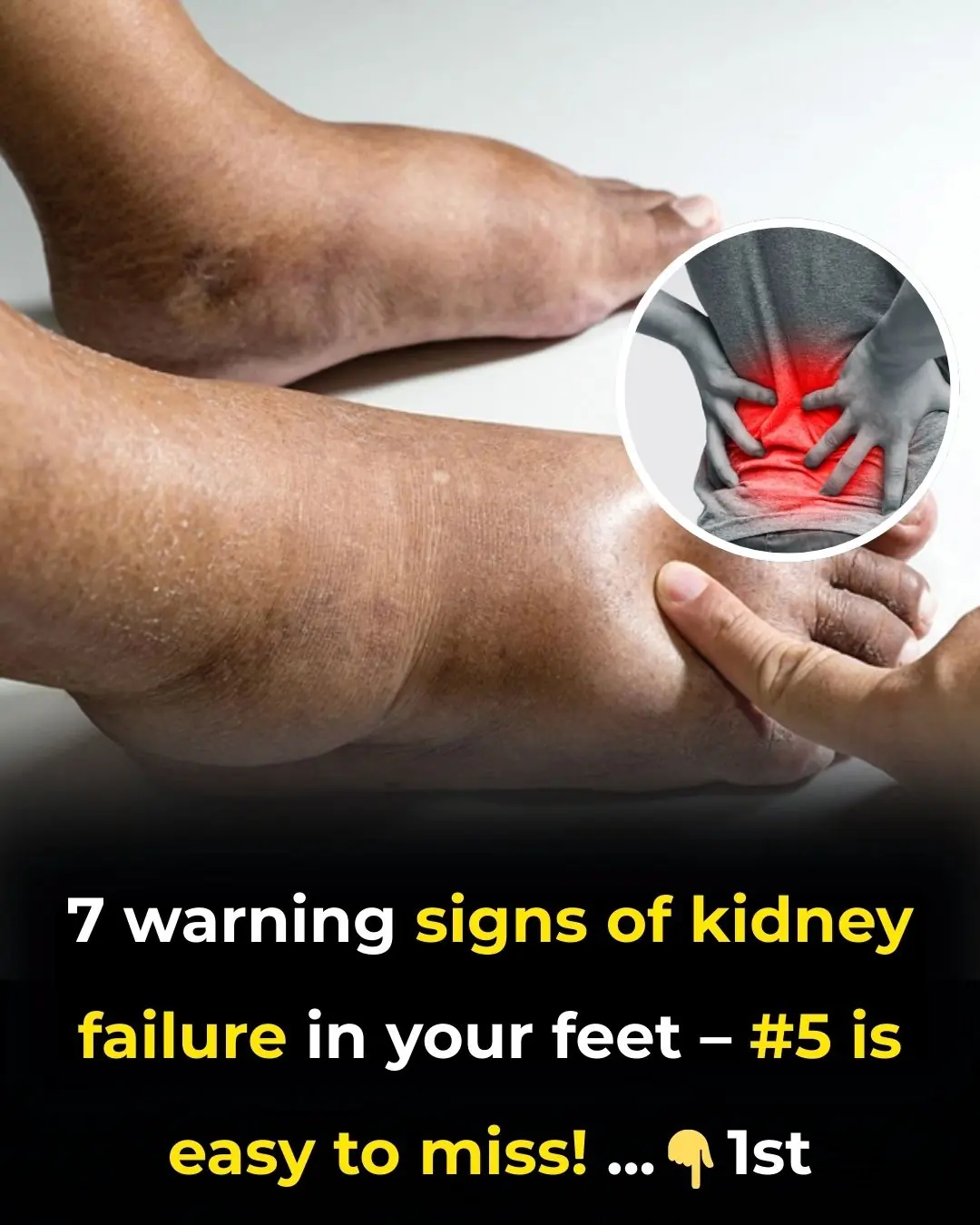
Most Widely Used High Blood Pressure Drug May Harm Heart Health, Study Shows

If you have high blood pressure, the last thing you want to hear is that your medication could be making things worse. But that’s exactly what new research from Penn State University suggests about a commonly prescribed class of drugs: L-type calcium channel blockers (LCCBs).
These medications—often used as first-line treatment for hypertension—may be doing more harm than good for some patients, potentially increasing the risk of heart failure and worsening vascular damage.
🧬 What the Study Found
The research, published by scientists at Penn State, shows that LCCBs may cause harmful structural changes in blood vessels. In both rat models and human vascular cells studied in vitro, these drugs were shown to reduce blood flow and increase pressure—paradoxically contributing to the very condition they are meant to treat.
Even more concerning, clinical data revealed a higher incidence of heart failure among hypertensive patients treated with LCCBs compared to those on other antihypertensive medications.
“We have found that these drugs may cause the same type of damage they are intended to prevent,” said Dr. Mohamed Trebak, professor of cellular and molecular physiology at Penn State.
🔬 The Science Behind the Risk
At the center of the issue are vascular smooth muscle cells (VSMCs)—the specialized cells that line the walls of blood vessels and regulate blood flow by contracting and relaxing. This action is heavily influenced by intracellular calcium levels.
In people with hypertension, excess calcium in VSMCs causes the cells to multiply and remodel, thickening vessel walls and making them stiffer. This remodeling contributes to chronically elevated blood pressure.
LCCBs were originally designed to block calcium from entering these cells, thereby reducing contraction and lowering blood pressure. However, the new study found that LCCBs can simultaneously trigger a different pathway that promotes the same harmful remodeling.
“L-type calcium channel blockers were created to prevent this,” said Trebak. “Yet, we found that these drugs also simultaneously cause remodeling and proliferation of VSMCs through another mechanism.”
📊 Real-World Consequences: Higher Heart Failure Rates
The research team also analyzed epidemiological data from a Penn State clinical database. They discovered that hypertensive patients treated with LCCBs had significantly higher rates of heart failure than those treated with other antihypertensives, such as ACE inhibitors, ARBs, or diuretics.
“Treatment with LCCBs is clinically associated with elevated incidence of heart failure,” Trebak noted. “This prompts a careful examination of the use of LCCBs during chronic hypertension, especially where vascular remodeling is evident.”
⚠️ Special Concerns for COVID-19 and Older Adults
The study also raises concerns about prescribing LCCBs in vulnerable populations, particularly:
-
Older adults with advanced hypertension
-
Patients with pre-existing vascular damage
-
Individuals infected with COVID-19, who are already at elevated risk for cardiovascular complications
The researchers caution that in these groups, LCCBs could potentially worsen vascular damage, rather than mitigate it.
🩺 What This Means for You
If you're currently taking an L-type calcium channel blocker for high blood pressure, don’t stop taking it without talking to your doctor. Every medication has risks and benefits, and treatment decisions should be personalized based on your full medical history.
That said, this new research highlights the importance of:
-
Regular follow-ups with your healthcare provider
-
Discussing medication alternatives if you have a high risk of heart failure
-
Monitoring for symptoms like shortness of breath, fatigue, or leg swelling, which may indicate early heart failure
✅ The Bottom Line
L-type calcium channel blockers are widely prescribed for a reason—they’re effective at lowering blood pressure. However, this new study adds a critical layer of insight: long-term use may contribute to harmful changes in blood vessels and increase the risk of heart failure in certain patients.
More research is needed, but for now, this serves as an important reminder: not all antihypertensive drugs work the same for every individual. Personalized treatment plans, close monitoring, and staying informed about the latest science can help ensure the safest and most effective care.
News in the same category


Shoulder Pain from Sleeping: Causes, Solutions and More

Teacher Shocked by Stage 4 Stomach Cancer Diagnosis After Mistaking Sore Throat for a Common Cold – 2 Kitchen "Culprits" Exposed
A sore throat may seem like nothing more than a seasonal annoyance, but sometimes it hides something far more dangerous. That was the devastating reality for a retired teacher in Taiwan who thought his discomfort was due to cold weather—until doctors re

50-Year-Old Man Dies After Eating Leftovers: 5 Foods You Should Never Keep Overnight
Leftovers may seem harmless, but in some cases, they can turn into hidden health risks. A tragic case has recently drawn attention to how certain foods, when stored improperly or left too long, may lead to life-threatening consequences.

3 Morning Urine Signs That Could Signal Silent Kidney Trouble – Don’t Ignore Them
Protecting your kidneys is about more than preserving the urinary system—it is about safeguarding your energy, your heart, and your long-term health.

Top 10 foods that improve blo:od circulation in legs

Cardiologist Reveals the #1 Exercise to Prevent a Heart Attack

Doctors prescribe LEVOTHYROXINE—but here’s what they don’t tell you

Claim: a juice regimen reportedly cleared can:cer cells in 42 days

Woman Endures Years of Swollen Foot Before Doctor Reveals Shocking Cause

Things People Do That Put Themselves Closer to a Stroke

The Harmful Effects of Squatting Over a Toilet 🚽

Rare Body Features That Show Just How Incredible the Human Body Is

Proven Health Benefits of Dates

Man Suffers a Stroke from Bathing After a Meal: 3 Things You Should Never Do

5 Warning Signs of a Dangerous Stroke and the 4 Groups Most at Risk

Waking Up at Midnight: Husband Complains of a Headache, Wife's Quick Thinking Saves His Life

Doctors finally reveal the BENEFIT of one egg a day

Largest-Ever Individually Randomized Trials Show High-Dose Flu Vaccines Reduce Hospitalizations
In short, these studies suggest that a stronger flu vaccine does far more than ward off seasonal sniffles—it can save lives, ease pressure on hospitals, and even protect the heart.
News Post

Do Stoned Dolphins Give ‘Puff Puff Pass’ A Whole New Meaning?

Recently Discovered Dinosaur ‘Mummy’ Is So Well-Preserved It Even Has The Skin And Guts Intact

Travel Coast-to-Coast by Train and See America’s Greatest Sites For Just Over $200

Sleepy Polar Bear Portrait Wins the Wildlife Photographer of the Year People’s Choice Award

Oil Infusion For Fast Hair Growth

7 warning signs of kidney failure in your feet – #5 is easy to miss!

How to Make a DIY Aloe Vera Night Cream for Glowing Skin

Shoulder Pain from Sleeping: Causes, Solutions and More

Vaseline Tips For Skin, Hair & Lips

Harvard Scientist Claims ‘Hostile’ Object Coming at Us Is Advanced ‘Mothership’ and Issues Warning

Lab-Made Butter Created From CO2 Tastes Like The Real Thing, Says Bill Gates

Natural Hair Rejuvenation: How to Restore Your Hair Color from Grey to Gorgeous
This DIY remedy provides a comprehensive approach to hair care, nourishing your hair both from within and externally.

Erase Wrinkles and Dark Spots Naturally With This DIY Aspirin & Vaseline Trick
Adding this natural remedy to your daily skincare routine can help you achieve smoother, younger-looking, and more radiant skin — all without relying on costly treatments.

DIY Clove Water Spray That Works Like Botox for Firm and Bright Skin
This homemade clove water spray, enriched with nature’s most powerful ingredients, offers a simple way to achieve firmer, brighter, and more youthful-looking skin — without the need for injections or costly skincare products.

Never Eat Eggs With These 6 Foods — A Dangerous Combination for Your Health
By avoiding these six food pairings and choosing the right cooking methods, you can enjoy eggs as a powerhouse of nutrition without compromising your health.

Cut soap and mix with this to put in the corner of the house: Mosquitoes will fly black
With these simple hacks—soap and sugar water, repellent plants, lemon with cloves, and coffee ground smoke—you can protect your home naturally.

5 Fish Parts You Should Never Eat – The #1 “Nutritious” Organ Could Turn Deadly
Fish remains one of nature’s best superfoods—but only when handled the right way.

Teacher Shocked by Stage 4 Stomach Cancer Diagnosis After Mistaking Sore Throat for a Common Cold – 2 Kitchen "Culprits" Exposed
A sore throat may seem like nothing more than a seasonal annoyance, but sometimes it hides something far more dangerous. That was the devastating reality for a retired teacher in Taiwan who thought his discomfort was due to cold weather—until doctors re

50-Year-Old Man Dies After Eating Leftovers: 5 Foods You Should Never Keep Overnight
Leftovers may seem harmless, but in some cases, they can turn into hidden health risks. A tragic case has recently drawn attention to how certain foods, when stored improperly or left too long, may lead to life-threatening consequences.